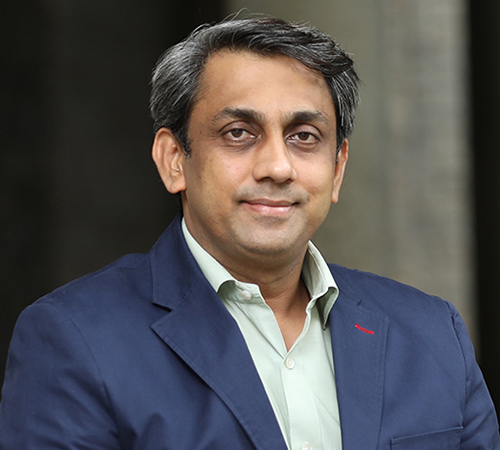Journal Article: 'Addressing Ageism in Healthcare: Insights for an Age-Inclusive Longevity Society' Prof. Allen P Ugargol

Abstract: As the demographic transition trudges along with the aging of the population, as a consequence, realizing healthy and productive aging for older adults can help potentiate the longevity dividend within a longevity society. The longevity transition being witnessed in low- and middle-income countries such as India highlights the need to envisage and create supportive age-inclusive environments to advance the longevity dividend within supportive constructs of a longevity society. While an aging society focuses on challenges brought about on account of age structure changes, the longevity society would augment interventions for healthy and productive aging, address age-based discrimination, extend work lives and garner the advantages of longer lives, and aim to bring about substantial improvements in terms of the lived experiences of older adults and ensure a positive societal framing of age. Supporting a healthy life at advanced ages, a healthy life expectancy, reducing health inequalities, and creating public policy discourse on supporting a longevity society are the global need of the hour. While healthy and productive aging is a global aspiration, the practice of age discrimination or ageism can significantly delay attempts to create an age-inclusive longevity society. It is unfortunate that there is quite a high degree of ageism witnessed and experienced even within healthcare settings. Though theoretical explanations, cultural connotations, and empirical evidence indicate significantly high ageism within healthcare settings, the negative consequences of age discrimination on the medical health and psychological health of older adults are largely missed. Ageism in healthcare settings is highly prevalent, pervasive, and is known to lead to negative health outcomes and affects routine medical recovery of older adults. Viewing age from a merely medical or healthcare point of view is prone to inherent caveats owing to the intrinsic disciplinary pedagogy, can lead to negative expectations, and can manifest as subtle or overt expressions of ageism. This chapter examines ageism within healthcare settings, the antecedents and consequences therein, and the significance of person-centered care in addressing ageism and discrimination against older adults. Advancing age-friendly and age-inclusive initiatives at healthcare settings, sensitizing healthcare workers, promoting healthy aging and aging in place, and combating ageism enhanced accessibility, and quality of healthcare delivery can be assured for older adults promising dignity and support for older adults in an impending longevity society.
Authors’ Names: Allen P Ugargol, Pearl Maria D’Souza
Journal Name: Springer Nature Singapore
URL: https://link.springer.com/referenceworkentry/10.1007/978-981-16-1914-4_234-1
Journal Article: 'Addressing Ageism in Healthcare: Insights for an Age-Inclusive Longevity Society' Prof. Allen P Ugargol
Abstract: As the demographic transition trudges along with the aging of the population, as a consequence, realizing healthy and productive aging for older adults can help potentiate the longevity dividend within a longevity society. The longevity transition being witnessed in low- and middle-income countries such as India highlights the need to envisage and create supportive age-inclusive environments to advance the longevity dividend within supportive constructs of a longevity society. While an aging society focuses on challenges brought about on account of age structure changes, the longevity society would augment interventions for healthy and productive aging, address age-based discrimination, extend work lives and garner the advantages of longer lives, and aim to bring about substantial improvements in terms of the lived experiences of older adults and ensure a positive societal framing of age. Supporting a healthy life at advanced ages, a healthy life expectancy, reducing health inequalities, and creating public policy discourse on supporting a longevity society are the global need of the hour. While healthy and productive aging is a global aspiration, the practice of age discrimination or ageism can significantly delay attempts to create an age-inclusive longevity society. It is unfortunate that there is quite a high degree of ageism witnessed and experienced even within healthcare settings. Though theoretical explanations, cultural connotations, and empirical evidence indicate significantly high ageism within healthcare settings, the negative consequences of age discrimination on the medical health and psychological health of older adults are largely missed. Ageism in healthcare settings is highly prevalent, pervasive, and is known to lead to negative health outcomes and affects routine medical recovery of older adults. Viewing age from a merely medical or healthcare point of view is prone to inherent caveats owing to the intrinsic disciplinary pedagogy, can lead to negative expectations, and can manifest as subtle or overt expressions of ageism. This chapter examines ageism within healthcare settings, the antecedents and consequences therein, and the significance of person-centered care in addressing ageism and discrimination against older adults. Advancing age-friendly and age-inclusive initiatives at healthcare settings, sensitizing healthcare workers, promoting healthy aging and aging in place, and combating ageism enhanced accessibility, and quality of healthcare delivery can be assured for older adults promising dignity and support for older adults in an impending longevity society.
Authors’ Names: Allen P Ugargol, Pearl Maria D’Souza
Journal Name: Springer Nature Singapore
URL: https://link.springer.com/referenceworkentry/10.1007/978-981-16-1914-4_234-1
